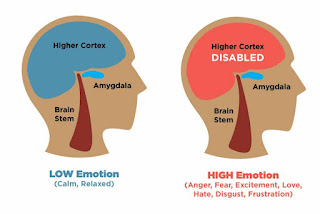Language Competence and Language Performance in SLA
It is generally accepted that language competence and language performance are two different and separated features in language learning (English). We need to suggest that separating both features are inappropriate. This discusses the importance of establishing the merging of both features to be a 'successful' language learner and how cognitive growth is influenced by the sociocultural settings where the language learners are exposed.
Language competence refers to learners' knowledge of the learning language, including the morphosyntactic rules and structures. Language inputs such as listening and reading are sources to the building-blocks of the language knowledge. On the one hand, language performance is the application of the language knowledge in practical terms, such as in communicative settings. Understanding those terms are fundamental in this stage as this clues how we refer to the object of the conversation.
In second language learning context such as English, most of teachers put a great emphasis on the importance of grammar mastery. Training and practice results measure how the language learners engage in the second language learning. Emphasizing the learners on those skills unconsciously ignores and disregards that language is a sociocultural product in which what the learners learn need to be connected to the "real" world of the targeted language sociocultural phenomena. Bearing the idea in mind is a good start to develop learners' awareness of that language, as an indispensable tool of communication, is inseparable from sociocultural settings.
The rise of the problem is illustrated by the students completing the written task in regards with morphosyntactic rules and structure are inactive in engaging in sociocultural activities such as communicating with native speakers. In other words, it can be argued that there is no guarantee that understanding the knowledge of the language (language competence) leads to success in sociocultural communication. Indeed, language ability is not what is constituted or situated in learners' mind, but in a multitude of sociocultural and institutional settings. Therefore, "ability" means the combination between language competence and language performance.
What can we suggest? Exposure is a key role to develop the language learners' performance. Exposure to a variety of potentially new sociocultural and institutional settings, and discursive practices pertaining to these settings are viewed as having a major impact on learners' consciousness, on their cognitive growth (Johnson, 2004). Social environment offers tremendous opportunities for language learners to perform or use the language. They can make request, self-repair, apology, argue, and any other transactional and interactional purposes. Understanding the interlocutors' sociocultural intentions may facilitate the learners to understand language deeper (the unsaid messages), not in the surface (syntactical aspects of the sentences). This indeed involves the cognitive maturity process so that they gain success in the aspects of their life, academically and professionally for instance. It should, however, be important to note that achieving this level would be a leaner's long journey.
What are the problems for whom have no opportunity to of that appropriate social context? It is understandable that living where language is spoken is the best way to use the language in practical term. This is because they are exposed to a wide variety of English use: exposure to traffic signs and language, television, radio broadcasting, and advertisement in nature enable them to develop their second language ego. In the meantime, online contacts with native speakers could be a realistic option to use the language. The rapidly technological development allows us to have more opportunities to use the language. In addition, finding our own way to keep using the language is fundamental to remain the learnt vocabularies active.
This illustration shows that, in the absence of language performance in sociocultural settings, language competence is insufficient to support the active engagement in sociocultural activities. It marks that both features are interwoven. Therefore, there is a need to further research of the interplay between Psycholinguistics and Sociolinguistics.


Comments
Post a Comment